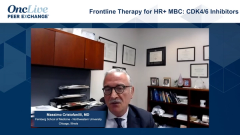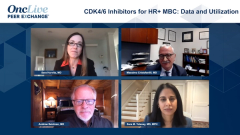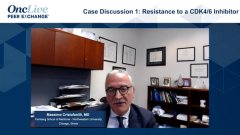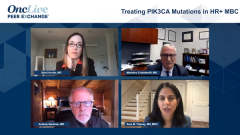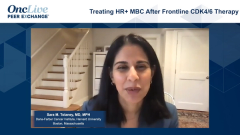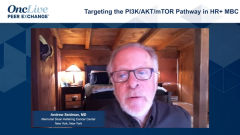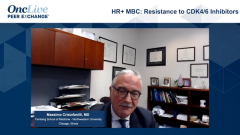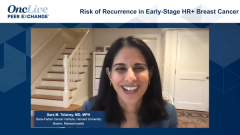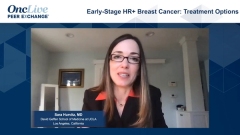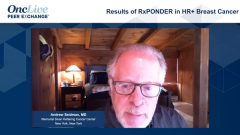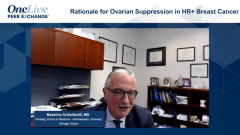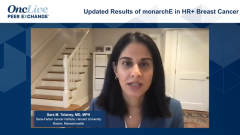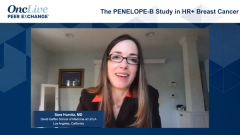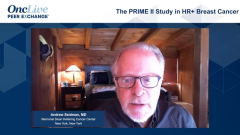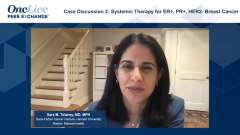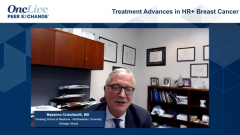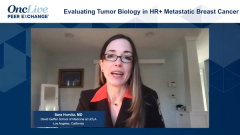
HR+ MBC: Resistance to CDK4/6 Inhibitors
Episodes in this series

Sara Hurvitz, MD: Let’s round out this section now, Massimo, and talk a bit about resistance to CDK4/6 inhibitors. Can you tell us a little about what is known about the mechanisms of resistance to these? Give us some insights into what investigations are happening to attempt to address this clinical gap?
Massimo Cristofanilli, MD: The resistance to CDK4/6 has probably been studied with these phase 3 studies where we have collected plasma and done a number of retrospective analyses with regard to mutations. And also tissue analysis and expression was associated with resistance up front to Ibrance [palbociclib] in patients who have been exposed and in combination with fulvestrant. I think for a time line with regard to the genomic profiling with cell-free DNA, the persistence of PI3 kinase, 15 days and maybe at completion of treatment is a marker of resistance, one of the measurements of this particular hot spot mutation. Of course, we notice that there is a difference in the impact of the 2 mutations that are most common at the end of treatment. If they have onset of new mutation, you may think about resistance to fulvestrant and not necessarily resistance to CDK4/6, but nevertheless, we tend to.
We should start to differentiate genomic resistance into different buckets. At some point we may think about this as a situation of whether you change the endocrine backbone or continue? I think this is better addressed with clinical trials. We talked about the PACE study briefly. It was a randomized study looking at progression after first-line AI [aromatase inhibitor] and CDK4/6 with fulvestrant, combination with Ibrance, including a checkpoint inhibitor. There are a number of other studies looking at other pathways, for example, FGFR mutation has been associated with resistance. There are agents that have been tested in combination at progression.
We talked about everolimus. That is probably 1 of the possible treatments in association with endocrine therapy because this pathway is very important with endocrine resistance overall, and maybe even CDK4/6 inhibitor resistance. There are a number of other cyclin inhibitors that have been tested. They’re going to be tested after CDK4/6.
Of course, the clinical question of using 1 CDK4/6 after the other, which happens in the clinic more frequently than not, based on the fact that maybe abemaciclib has single-agent activity. We can assume that after progression on chemotherapy or CDK4/6, there could be some efficacy of this agent, particularly in patients who may have developed brain metastases, we have the potential to prevent brain metastasis. Site of recurrence is important for the patient. For example, as we mentioned, we don’t have to forget the extent of disease—if the patient had extensive liver metastases, we do use another combination agent. We then go to chemotherapy. I think the community approach is probably using chemotherapy sooner than later. It is up to us to identify which patients would be resistant or which patient you can continue to use endocrine agents, single agent. I think the clinical trial is probably the answer. If somebody progressed on CDK4/6, and you do have an available clinical trial, please enroll the patient in a clinical trial with a targeted agent.
Sara Hurvitz, MD: It’s clearly an area of unmet need and a lot of rich research that’s ongoing, so I would underscore your point about clinical trial enrollment in the second-line setting and beyond. I think it’s critical.
Transcript Edited for Clarity


